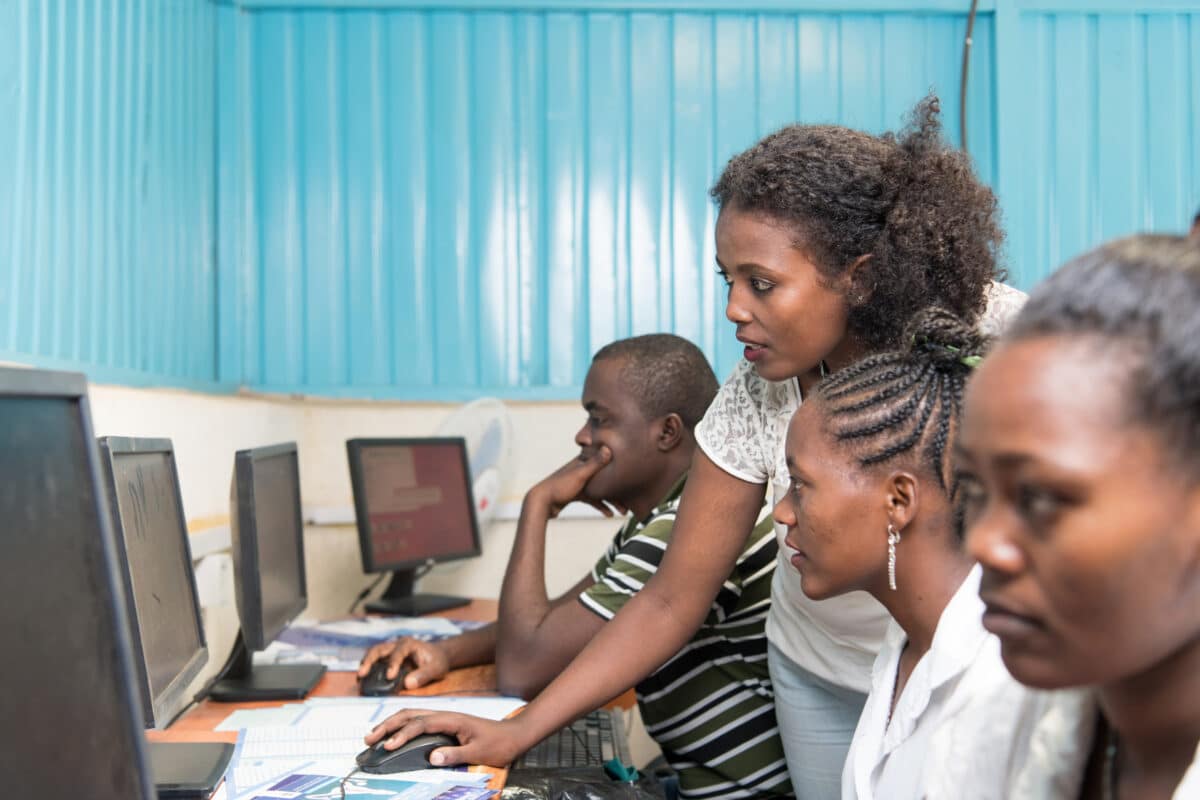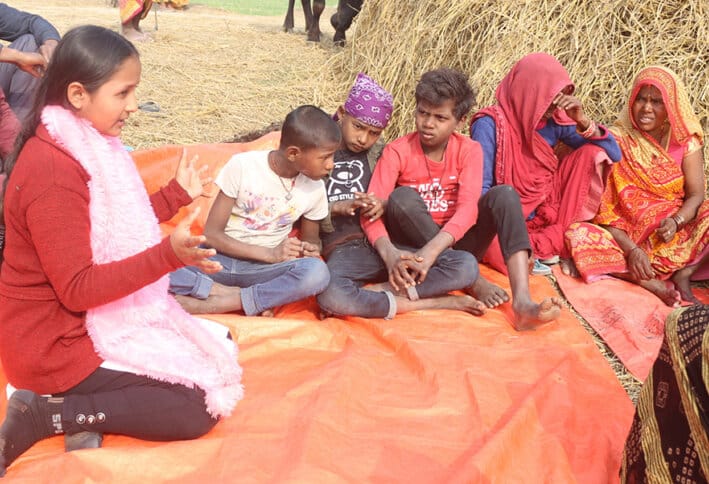Youth unemployment is a significant problem in Ethiopia, particularly in urban areas and for young women. A new project aims to nurture youth leadership and participation in the workforce through a community service approach designed to mend the social fabric and increase young people’s engagement in dignified and fulfilling work.
The Mastercard Foundation has joined hands with the John Hopkins Center for Communication Programs and Youth Network for Sustainable Development (YNSD) and to enable 500,000 young Ethiopians to attend community service activities and gain job preparedness skills under the new project, Community Service as a Pathway to Work (CSPW), a five-year, $48-million collaboration among the three organizations.
“The CSPW initiative is an exciting chance to support Ethiopian youth in gaining key skills to help them better serve their communities, create economic opportunities and secure a more stable and dignified future for them and their families,” said CCP’s Executive Director Debora Freitas López. “Through this initiative, we will engage young people as agents of change who are full of potential.”
The CSPW project will be active in 150 woredas (districts) and city administrations across five regions of Ethiopia, 29 of which will be in post-conflict areas. CCP and YNSD will design and test a community service approach that develops much-needed leadership and business development skills and links young people with existing job training. The project will also help young people access finance opportunities identified and coordinated through the project’s advocacy and capacity-strengthening activities with government, civic and private sector actors.
This strategic partnership pairs a global organization with an excellent track record in social and behavior change and systems strengthening, with a well-established network of local youth organizations with rich youth mobilization and advocacy experience.
Of the 500,000 young people completing training and community service, YNSD and CCP aim to enable at least 200,000 young people to find dignified and fulfilling jobs in public or private sectors or create their businesses over the next five years. The $48 million from the Mastercard Foundation includes at least $15 million in microfinancing that young people can apply for to get their newly established enterprises off the ground.
The project hopes to motivate and assist young people through various tailored trainings to help them identify community needs during their transition to work. It will also strengthen systems and institutions across the board and enable the creation, improvement and implementation of policies and directives that support community service and youth-focused initiatives.
Upon graduating from the community service programs, the young people will be supported to transition to work through linkages to job-matching initiatives (for wage employment) and provision of skills training in business development, technical skills and access to finance opportunities (for self-employment).
YNSD is a local umbrella of more than 160 youth-centered organizations and associations with extensive experience in youth mobilization and the potential for broader youth reach through its member network and beyond. It has formed a strategic partnership with key stakeholders working in the ecosystem and has experience in policy and advocacy work.
“Transforming the life of a single youth will have its ripple effect,” said Esayas Alemayehu, YNSD’s executive director. “Imagine what we can achieve when we train, empower and meaningfully engage 500,000 young people. The CSPW program is the key to answering this question.”
CCP Project Director Betemariam Alemu added that “the unemployment rate among Ethiopian youth is 26 percent. The economy is growing, but because of high population growth, the labor force cannot absorb the countless number of people graduating from colleges. That’s why one focus will be on promoting entrepreneurship and helping young people and their communities envision what kinds of needs might be met by new businesses they can start.”
The initiative will also be undertaken in post-conflict areas (19 percent) to reestablish the social fabric and build social cohesion while influencing economic growth and youth employment prospects.
The program will complement MasterCard Foundation’s MESMER initiative, a recently announced program which aims to create more than 410,000 jobs by supporting and building the recovery and resilience of more than 72,000 informal, start-up, and formal micro, small and medium enterprises (MSMEs) through access to finance, business development and psychosocial support services in conflict-affected areas.
The CSPW program’s aims mirror that of the Mastercard Foundation’s Young Africa Works strategy in Ethiopia, which is being implemented to enable 10 million young people, especially young women (70 percent), to secure employment they see as dignified and fulfilling. Using youth employment as a critical measure of socioeconomic progress, the strategy aims to help millions find a pathway out of poverty.
In alignment with the Mastercard Foundation Ethiopia country roadmap, the CSPW program partnership intends to enable direct job opportunities for 200,000 young people through community service, hands-on skills, tailored training, access to finance and business development services and linkage with employment opportunities.
“Community Service as a Pathway to Work will equip young women and men with tailored skills that will enable them to identify problems, co-create solutions, implement and measure planned activities, celebrate their achievements and compile insights from their journey,” said Samuel Yalew Adela, Mastercard Foundation’s country director for Ethiopia. “We hope this opportunity will deepen their understanding of their community and help them examine and develop perspectives about work, skills and purpose.”





